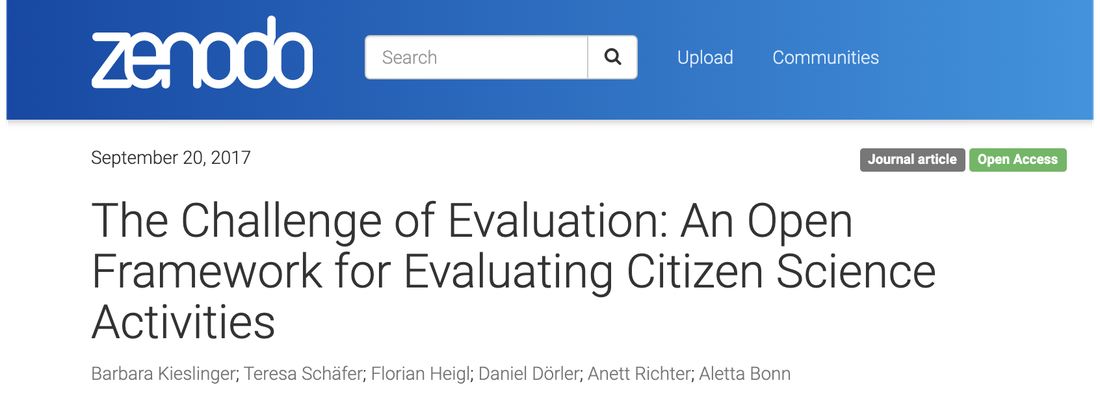
Citizen Science Evaluation Framework
In today’s knowledge-based society we are experiencing a rise in citizen science activities. Citizen science goals include enhancing scientific knowledge generation, contributing to societally relevant questions, fostering scientific literacy in society and transforming science communication. These aims, however, are rarely evaluated, and project managers as well as prospective funders are often at a loss when it comes to assessing and reviewing the quality and impact of citizen science activities. To ensure and improve the quality of citizen science outcomes evaluation methods are required for planning, self-evaluation and training development as well as for informing funding reviews and impact assessments. Here, based on an in-depth review of the characteristics and diversity of citizen science activities and current evaluation practices, we develop an open framework for evaluating diverse citizen science activities, ranging from projects initiated by grassroots initiatives to those led by academic scientists. The framework incorporates the social, the scientific and the socio-ecological/economic perspectives of citizen science and thus offers a comprehensive collection of indicators at a glance. Indicators on a process- and impact-level can be selected and prioritized from all three perspectives, according to the specific contexts and targets. The framework guides and fosters the critical assessment and enhancement of citizen science projects against these goals both for external funding reviews as well as for internal project development.
Publish information
| Authors: | T Schaefer; B Kieslinger; D Dörler; F Heigl; A Richter; A Bonn; |
| Publisher: | Zenodo |
| Year of publication: | 2017 |
| License: | Creative Commons Attribution 4.0 International |
| DOI: | 10.31235/osf.io/enzc9 |